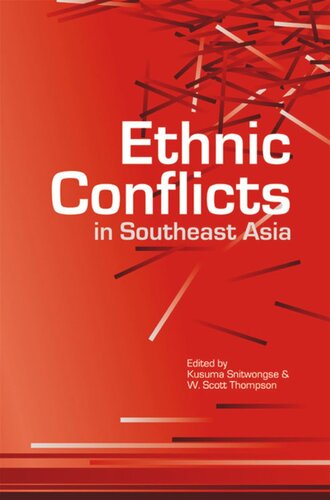

Most ebook files are in PDF format, so you can easily read them using various software such as Foxit Reader or directly on the Google Chrome browser.
Some ebook files are released by publishers in other formats such as .awz, .mobi, .epub, .fb2, etc. You may need to install specific software to read these formats on mobile/PC, such as Calibre.
Please read the tutorial at this link: https://ebookbell.com/faq
We offer FREE conversion to the popular formats you request; however, this may take some time. Therefore, right after payment, please email us, and we will try to provide the service as quickly as possible.
For some exceptional file formats or broken links (if any), please refrain from opening any disputes. Instead, email us first, and we will try to assist within a maximum of 6 hours.
EbookBell Team

5.0
70 reviewsThis volume examines different ethnic configurations and conflict avoidance and resolution in five different Southeast Asian countries. *Tin Maung Maung Than traces the history and impossibility of the current Myanmar regime’s quest to integrate the various ethnic groups in the border regions while insisting on a unitary state with all real power kept to themselves. *Rizal Sukma divides conflicts in Indonesia into horizontal (Kalimantan, Maluku and Sulawesi) and vertical ones (the Madurese versus the Dayaks) and assesses the prospects for peaceful resolution if the country’s fledgling democracy does not properly address them. *Miriam Coronel Ferrer examines the conflicts in Mindanao against the apparent lack of willingness of Manila to come to terms with the root causes as well as the infusion of arms and ideology from outside. ∑ Zakaria Haji Ahmad and Suzaina Kadir analyse Malaysia’s relatively successful handling of an ethnically divided society, which has permitted impressive stability since 1969. ∑ Chayan Vaddhanaphuti focuses on the non-Thai border peoples of northern Thailand, noting the legacy of the government’s policy of selective citizenship. Ethnic Conflicts in Southeast Asia will be an invaluable resource for scholars of contemporary Southeast Asia as well as in other regions, policy-makers and others, who wish to assess and develop strategies to prevent, modulate and resolve such conflicts.